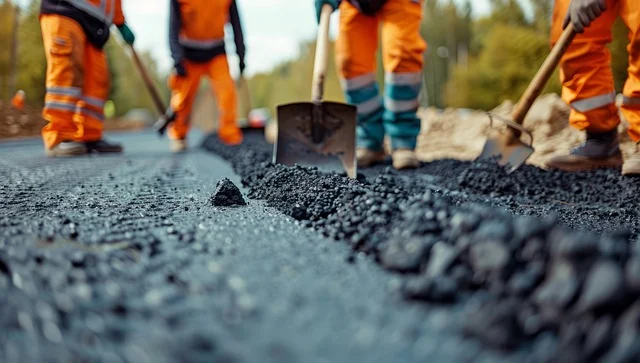Sustainability has become a paramount concern in the construction industry, and building regulations are increasingly reflecting this shift towards more environmentally friendly and energy-efficient buildings. As a construction company, it’s crucial to understand the sustainability building regulations in the UK and how they impact your projects.
Free Initial Telephone Discussion
For a free initial discussion with a member of our New Enquiries Team, get in touch with us today. We are experienced in dealing with all the aspects of construction law, and once instructed, we will review your situation and discuss the options open to you in a clear and approachable manner. Early expert legal assistance can help ensure you are on the best possible footing from the start and also avoid the stress of dealing with these issues on your own. Simply call us on 0345 901 0445 or click here to make a free enquiry and a member of the team will get back to you.
Key Regulations and Standards
Several regulations and standards guide sustainable building practices in the UK:
- Building Regulations 2010:
- Part L: This part sets minimum standards for energy efficiency, encouraging the use of energy-efficient materials, appliances, and systems.
- Part F: This part focuses on ventilation, aiming to improve indoor air quality and reduce energy consumption.
- Part Q: This part addresses acoustic performance, ensuring that buildings are adequately soundproofed to minimise noise pollution.
- Code for Sustainable Homes: This voluntary code provides a framework for sustainable homebuilding, covering various aspects, including energy efficiency, water use, materials, and waste management.
- BRE Environmental Assessment Method (BREEAM): BREEAM is a widely recognised sustainability assessment method that evaluates the environmental performance of buildings. It covers factors such as energy and water use, materials, waste management, and ecology.
- Well Building Standard: This standard focuses on the health and wellbeing of building occupants, considering factors like air quality, lighting, and acoustics.
Sustainability Considerations for Construction Companies
To comply with sustainability regulations and achieve sustainable building practices, construction companies should consider the following:
- Energy Efficiency:
– Employ energy-efficient building materials and technologies.
– Optimize building orientation and design to maximize natural light and minimize energy consumption.
– Implement high-performance insulation and airtightness measures.
– Install efficient heating, cooling, and ventilation systems.
– Use renewable energy sources, such as solar panels or ground source heat pumps.
- Water Efficiency:
– Install water-efficient fixtures and fittings.
– Implement rainwater harvesting systems.
– Minimize water usage in landscaping.
- Material Selection:
– Prioritize the use of sustainable and recyclable materials.
– Minimize the use of harmful substances and chemicals.
– Reduce waste generation and promote recycling.
- Waste Management:
– Implement effective waste management plans to minimize waste to landfill.
– Recycle and reuse materials whenever possible.
- Indoor Air Quality:
– Ensure adequate ventilation and air filtration.
– Use low-emission materials and finishes.
– Monitor and control indoor environmental conditions.
Legal Implications of Non-Compliance
Non-compliance with sustainability building regulations can result in various legal consequences, including:
- Enforcement Notices: Building control bodies may issue enforcement notices requiring remedial action to bring the building up to standard.
- Prosecution: In serious cases, individuals or companies may face prosecution and fines.
- Civil Liability: Building owners and occupiers may be liable for compensation claims if the building fails to meet regulatory standards and causes harm.
- Reputational Damage: Non-compliance can damage a company’s reputation and lead to loss of business.
Legal Advice and Support
To navigate the complex landscape of sustainability building regulations, construction companies should seek legal advice from experienced professionals. Blackstone Solicitors can provide expert legal advice and support, including:
- Contractual Issues: We can advise on contract terms related to sustainability and help to allocate responsibilities.
- Dispute Resolution: If disputes arise with clients, contractors, or regulatory authorities, we can represent your interests and seek a favourable outcome.
By prioritizing sustainability in your construction projects, you can contribute to a more sustainable future while protecting your business interests.
How we can help
We have a proven track record of helping clients deal with construction law. We will guide you diligently and ensure all checks are carried out swiftly and efficiently and we firmly believe that with the right solicitors by your side, the entire process will seem more manageable and far less daunting. You can read more about the range of construction law services we offer by clicking here: https://blackstonesolicitorsltd.co.uk/construction-solicitors/
How to Contact Our Construction Solicitors
It is important for you to be well informed about the possible implications of a construction issue. However, expert legal support is crucial in terms of ensuring a positive outcome to your case.
To speak to our Construction solicitors today, simply call us on 0345 901 0445, or click here to make a free enquiry. We are well known across the country and can assist wherever you are based. We also have offices based in Cheshire and London.
Disclaimer: This article provides general information only and does not constitute legal advice on any individual circumstances.



